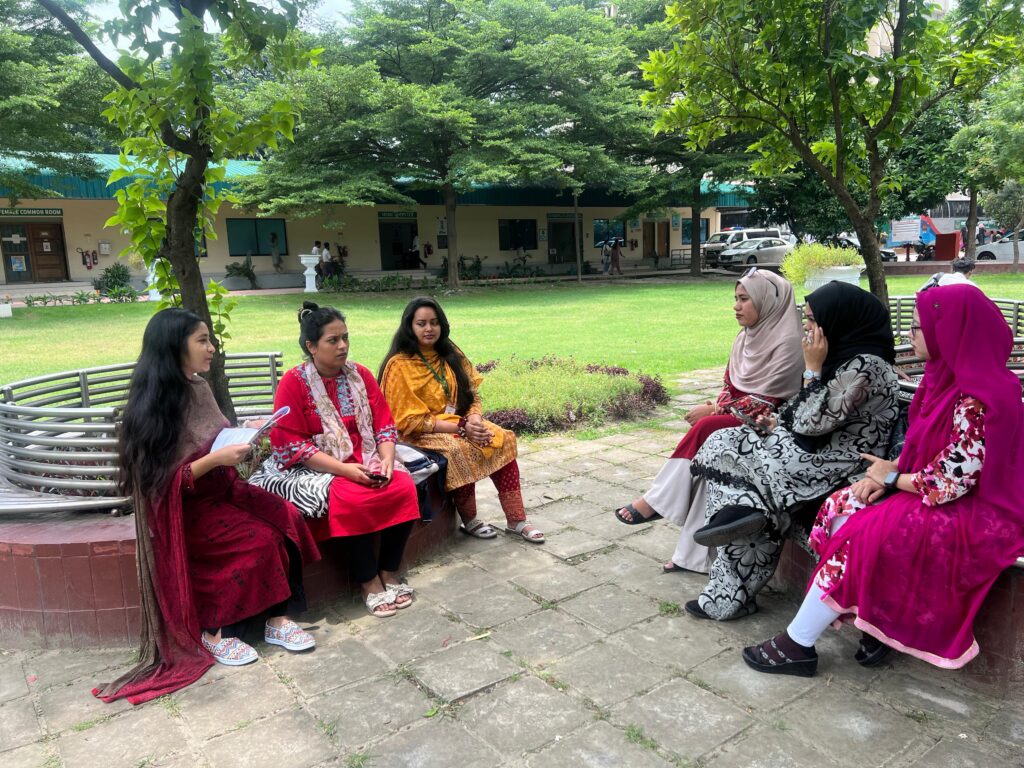- Transport for London (TfL) is working with Steer, a UK transport consultancy, and the Shakti Foundation, a Bangladeshi women’s rights NGO, to improve the safety of women and girls on buses in Dhaka, Bangladesh.
- The vast majority of women and girls report experiencing sexual harassment when riding the bus in Dhaka. This impacts their mobility, access to jobs and personal finances.
- TfL and its partners are now conducting research to better understand the extent of the challenge, help identify root causes and support stakeholders to develop locally tailored interventions.

The Bangladeshi capital of Dhaka is home to more than 10 million women and girls, a figure that is set to increase in the coming decades as the city’s population grows. Women and girls frequently face discrimination and harassment on public transport in Dhaka, including the city’s extensive bus network. Without addressing these issues, any bus-focused project risks excluding women from the economic and social benefits they bring.
Transport for London (TfL) is working with Steer, a UK transport consultancy, and its local partners – including Bangladeshi women’s rights NGO, the Shakti Foundation – to conduct research to better understand the extent of the challenge, help identify root causes and support stakeholders to develop locally tailored interventions.
Initial findings show that the vast majority of women travelling by bus have experienced some form of sexual harassment, and that such harassment is often normalised. Women also report frequently being refused entry to buses, especially at busy times. Not only does this have a significant effect on women’s mobility, limiting their opportunities, but it also means some women feel forced to choose more expensive forms of transport, such as auto rickshaws.
TfL has already been working with Dhaka North City Corporation since 2023 to improve traffic management and bus operations on a pilot corridor in the centre of the city. A GCIEP delivery partner, TfL consulted with additional stakeholders (including the Shakti Foundation) during a visit to Dhaka in July 2024 and introduced a new project focused on ending violence and aggression against women and girls.
The survey results are now being analysed and will be shared with UK’s Foreign and Commonwealth Development Office (FCDO). TfL is planning to build on these findings by supporting Dhaka North City Corporation and other local stakeholders to develop tailored interventions to improve the safety and security of women and girls travelling on public transport in Dhaka.
Throughout the project, TfL will provide capacity building and sharing key lessons learnt from their own experience of ending violence against women and girls in the UK. In the next phase of this work, TfL is also looking to work with FCDO to apply GCIEP’s new Gender Equality, Disability and Social Inclusion Lens Toolkit to this work.
This project shows what can happen when a broad spectrum of organisations come together. TfL’s partnerships with Steer and its local partners is bringing valuable local expertise. TfL has also engaged with the World Bank and the Swedish Embassy, both of which are tackling issues of discrimination and violence against women and girls, to share lessons learned and to ensure that the projects are aligned.
In this way, this project is raising awareness of the pressing issue of violence against women and girls by enhancing knowledge of the specific barriers they face on public transport in Dhaka, and by helping inform the development of locally tailored solutions.
The UK’s Green Cities, Infrastructure and Energy Programme is tackling climate change and extreme poverty by accelerating the delivery of sustainable green cities and climate-resilient infrastructure.
Published
04/07/25
